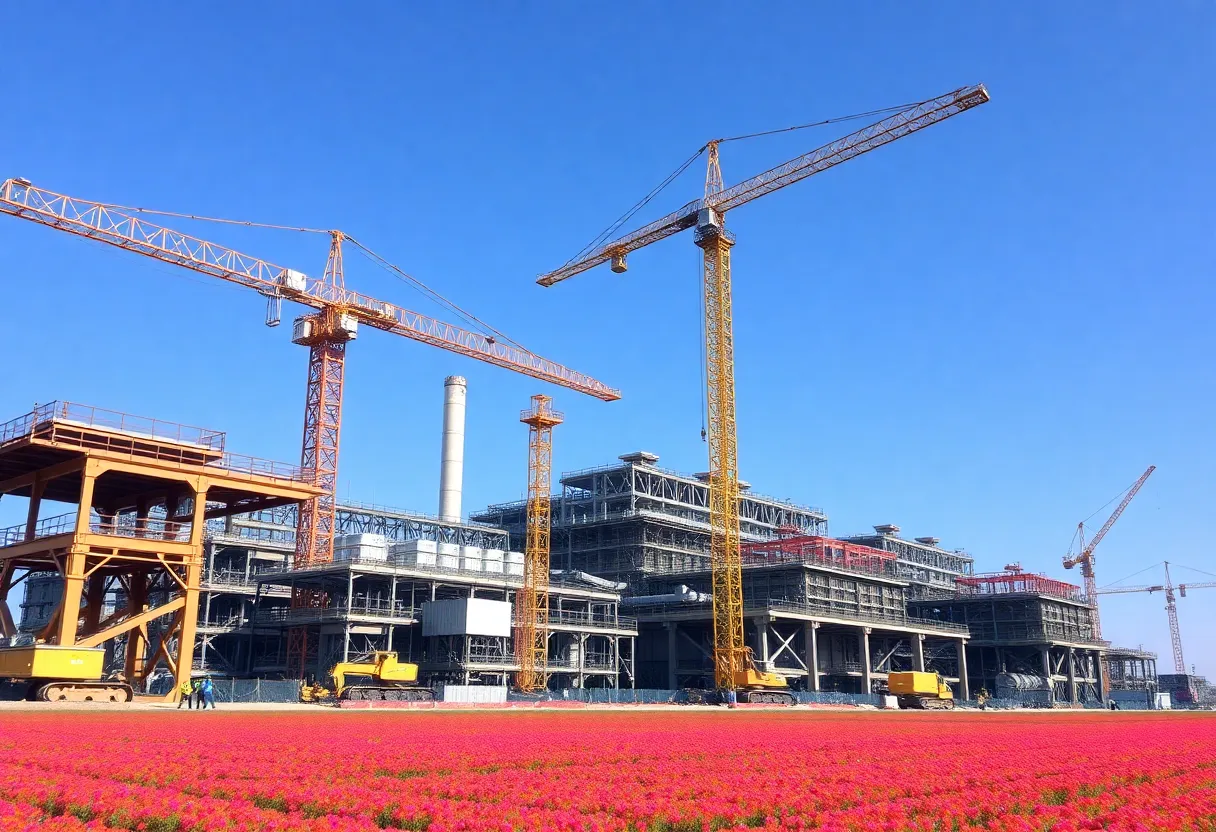News Summary
Texas is bracing for a significant energy surge, with experts predicting the state’s energy needs will double in the next six years due to growth in data centers and the oil and gas industry. The Electric Reliability Council of Texas (ERCOT) raises concerns about load forecasting’s accuracy, pushing lawmakers to consider new legislation like Senate Bill 6, which would require businesses to provide better data on energy demands. While the goal is improved grid reliability, some business groups warn these regulations could drive industry away from the state.
Texas is poised to experience a significant increase in its energy demands, with projections indicating that the state’s energy needs could nearly double within the next six years. This anticipated surge, primarily driven by the growth of data centers and the oil and gas industries, has prompted legislative action as state officials and industry experts work to address the looming challenges facing the Electric Reliability Council of Texas (ERCOT).
The growing energy demand has raised concerns among state leaders regarding ERCOT’s ability to accurately forecast load requirements. State Senator Phil King has voiced apprehensions about the current forecasting methodologies, suggesting they lack credibility. These concerns point to the potential risks of either overbuilding or underbuilding energy resources in response to future needs.
To tackle these issues, Senator King has introduced Senate Bill 6, which seeks to establish new requirements for businesses to supply ERCOT with enhanced data for more accurate energy load forecasting. The bill has successfully passed the Senate and is anticipated to move forward in the Texas House. If enacted, the legislation would mandate businesses to pay upfront fees for their operations and report whether they have similar energy requests in Texas or other states.
Key Provisions of Senate Bill 6
Under Senate Bill 6, facilities would also be required to notify ERCOT if their backup generators can provide at least 50% of their power needs during emergencies. In times of crisis, ERCOT would have the authority to direct facilities to rely on their backup power rather than the main grid. This measure includes the capability to shut down a facility’s power with just one day’s notice, emphasizing the need for immediate response in emergency situations.
Furthermore, the bill requires businesses to invest at least $100,000 to conduct studies on the necessary transmission work for electricity transport and to demonstrate their capability to support the construction of essential infrastructure.
Goal of the Legislation
The main objective of Senate Bill 6 is to ensure the reliability of Texas’ energy grid while simultaneously fostering business expansion within the state. However, industry groups have raised concerns that the bill may impose overly restrictive measures that could hinder operations and deter investment in Texas.
Concerns have especially centered around provisions asking companies to disclose competitive information that may not be necessary for ERCOT’s management of the energy grid. Industry representatives have underscored the need to find a balance between meeting energy demands and keeping Texas an attractive location for large businesses.
Expanding ERCOT’s Powers
The legislation also aims to enhance the power of the Public Utility Commission, which would have the authority to approve or reject energy arrangements. The commission will also work on strategies for cost allocation related to transmission infrastructure improvements.
Stakeholders within the energy sector acknowledge the importance of adapting existing infrastructures to accommodate a rising demand driven by factors such as electric vehicle adoption, population growth, and advancements in technologies, including artificial intelligence. Current discussions are also exploring alternatives like microgrid technology and AI-infused solutions as potential strategies to manage escalating energy requirements and improve resilience in the energy grid.
Current Challenges in Texas’ Energy Sector
The Texas energy sector faces persistent challenges, including aging infrastructure and vulnerabilities revealed during extreme weather events that impact power reliability. The ongoing evolution of energy demands necessitates a strategic approach to ensure the state can meet future requirements while fostering an economically conducive environment.
As Texas moves forward with legislative measures and industry adaptations, the interplay between energy sustainability, economic growth, and operational efficiency remains a critical focus for policymakers and business leaders alike. The developments in Senate Bill 6 will continue to unfold as stakeholders engage in proactive dialogue to address the pressing energy needs of the state.
Deeper Dive: News & Info About This Topic
- Entergy Texas Receives Approval on Future Resiliency Plan
- NBC Dallas: Energy Leaders Gather in Dallas
- Gates Notes: Visiting Texas to See the Future
- BP: Texas – The Dynamic Hub of America’s Energy Future
- BIC Magazine: Building a Foundation for Texas Energy Future
- Wikipedia: Electric Reliability Council of Texas
- Google Search: Texas Energy Future
- Google Scholar: Texas Energy Infrastructure
- Encyclopedia Britannica: Energy
- Google News: Texas Senate Bill 6
Author: STAFF HERE GEORGETOWN
The GEORGETOWN STAFF WRITER represents the experienced team at HEREgeorgetown.com, your go-to source for actionable local news and information in Georgetown, Williamson County, and beyond. Specializing in "news you can use," we cover essential topics like product reviews for personal and business needs, local business directories, politics, real estate trends, neighborhood insights, and state news affecting the area—with deep expertise drawn from years of dedicated reporting and strong community input, including local press releases and business updates. We deliver top reporting on high-value events such as the Red Poppy Festival, Georgetown Swirl, and Christmas Stroll. Our coverage extends to key organizations like the Georgetown Chamber of Commerce and the Downtown Georgetown Association, plus leading businesses in manufacturing and tourism that power the local economy such as local wineries and historic downtown shops. As part of the broader HERE network, including HEREaustin.com, HEREcollegestation.com, HEREdallas.com, HEREhouston.com, HEREgeorgetown.com, and HEREsanantonio.com, we provide comprehensive, credible insights into Texas's dynamic landscape.






